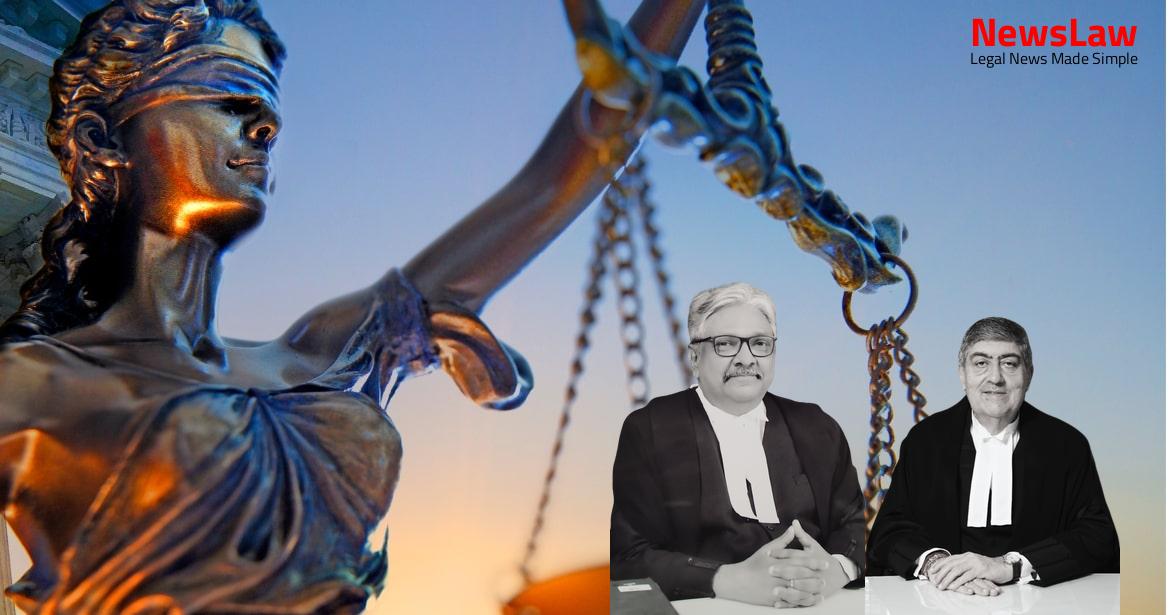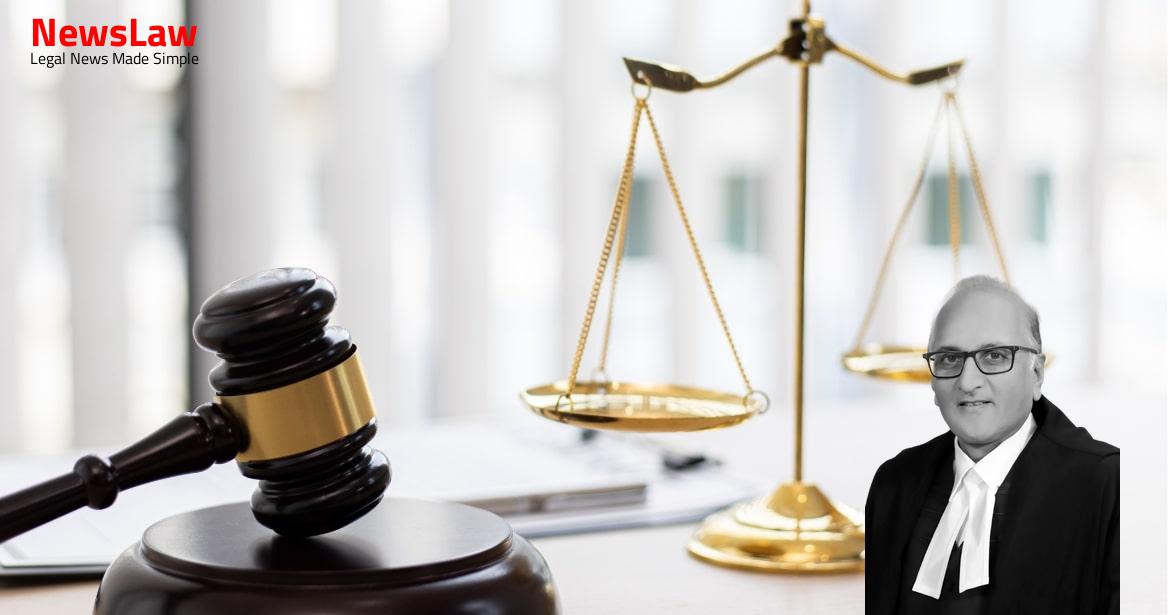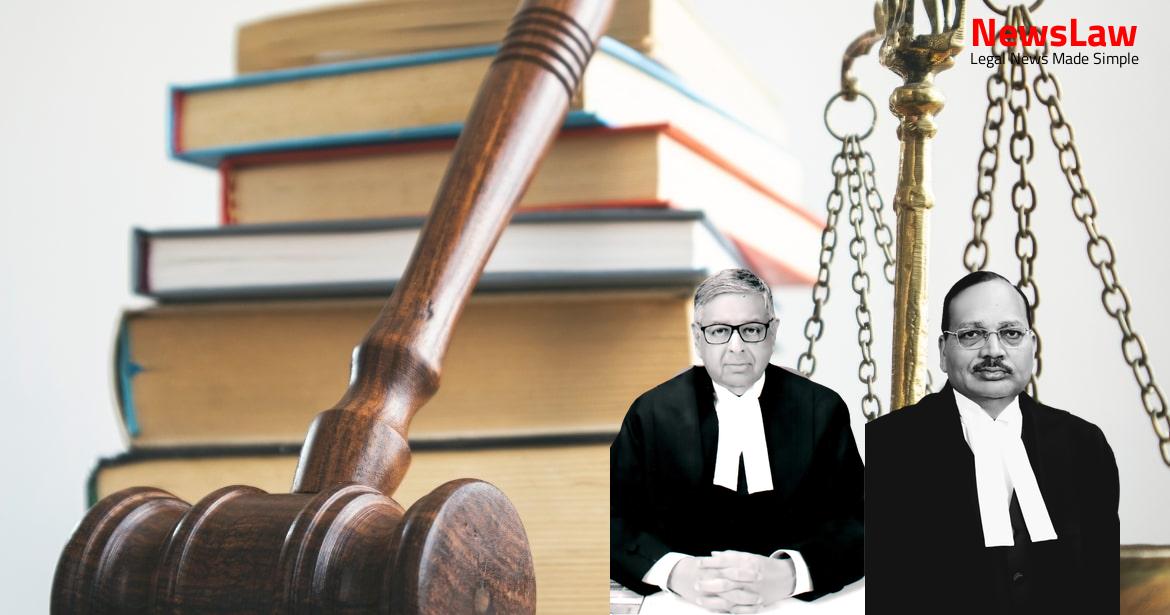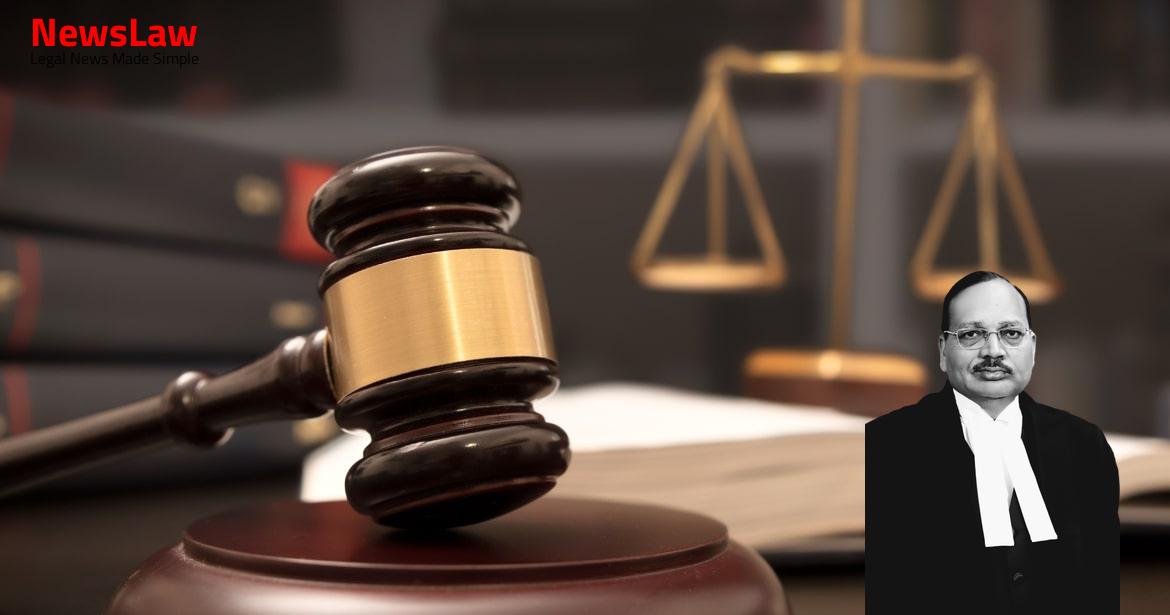The Supreme Court of India recently delivered a significant judgement related to the reconstitution of a partnership firm in a mining case. The case involved intricate procedures within the Department of Mines and Geology, with allegations of illegalities and fraudulent activities. The appellant, who was the Director of Mines and Geology, argued in defense of his actions. The court’s decision has far-reaching implications on similar cases in the future. #SupremeCourt #LegalCase #JusticeServed
Facts
- The appellant, who was Director of Mines and Geology in Karnataka, was accused in a case related to reconstitution of a partnership firm involved in mining operations.
- The firm, AMC, had obtained a mining lease in 1966 and underwent several reconstitutions over the years without filing required applications under Rule 37 of the Rules.
- The appellant argued that the reconstitution did not require transfer applications as the lease was an asset of the firm and not of individual partners.
- Allegations against the appellant included criminal conspiracy and abuse of official position to cheat the Government.
- The appellant contended that he acted in good faith based on Section 27 of the Act and past precedents, and that the decision to issue permits in the name of the firm was legitimate.
- The High Court set aside the Trial Court’s order discharging the appellant citing insufficient evidence to frame charges.
- The case stemmed from an investigation into illegalities related to Mining Lease No. 2434 of AMC.
- The alleged offenses were linked to unauthorized mining activities and fraudulent procurement of permits.
- The appellant emphasized his reputation for honesty and diligence as a public servant throughout his career.
- The case involved intricate procedures within the Department of Mines and Geology for lease reconstitution and permit issuance.
- The court emphasized the need to prove conspiracy for punishment under Section 120B of the IPC.
- Illegal agreements can be proven through necessary implication and inference of illegal acts or omissions by conspirators.
- Discussion on principles of discharge under Sections 227 and 228 took place.
- The court found no fault in accepting reconstitution.
- The appellant was faulted only after the first and second accused became partners in 2009.
- Statements of CWs did not provide material evidence against Accused No. 3 in committing criminal conspiracy.
- The argument by the Special Public Prosecutor was not accepted by the court.
- IA No. 30 was allowed based on the arguments.
- The appellant pointed out reconstitution of AMC on multiple occasions.
- Court’s findings indicated that the act of Accused No. 3 directing subordinates to issue Mineral Dispatch Permit does not establish criminal liability.
Also Read: Analyzing Legal Reasoning in a Poisoning Death Case
Arguments
- Rule 37 of the Rules was not invoked despite the lease being originally in favor of AMC in 1966.
- The firm was reconstituted numerous times over the years.
- The argument that AMC was frequently reconstituted and discussions were held with CW21 before issuing MDPs was considered a matter of defense that could not be pursued initially.
- The evidentiary material leaned more towards grave suspicion rather than mere suspicion, as per legal precedents cited.
- The appellant recommended issuing MDPs despite office notes indicating a need for legal opinion, leading to a substantial alleged loss to the State exchequer.
- The appellant directed MDPs to be issued in the name of the firm, claiming bonafide actions, but the Trial Judge found circumstantial evidence to the contrary.
- The Trial Judge’s decision was overturned, stating the appellant acted in violation of statutory provisions and setting aside the appellant’s discharge order.
Also Read: Chhabildas v. State of Maharashtra: Land Reservation and Acquisition Case
Analysis
- The appellant acted in accordance with the practice in the department, not invoking Rule 37 pointedly.
- The prosecution’s case relies on the statement of the Deputy Director (Legal) who claims no opinion was sought.
- The accused can explain away materials giving rise to suspicion by relying on prosecution’s materials only.
- The case involves a transfer of lease without prior government sanction under Rule 37.
- Rule 37 does not expressly forbid transfer but requires government sanction.
- The appellant’s order spoke of obtaining legal opinion, but Deputy Director (Legal) denies giving any opinion.
- The Charge Witness indicates no legal opinion was sought, contradicting appellant’s claim.
- The accused cannot rely on material as a defense to seek discharge.
- The Prosecution asserts that under Rule 37, the appellant should have obtained prior government sanction before reconstituting the firm.
- The Trial Court refers to a Division Bench judgment in a similar case.
- The appellant proposed obtaining legal opinion before reconstitution of the firm.
- At the framing of charges, the court must consider the evidence and documents produced by the prosecution.
- The court cannot engage in a roving inquiry but must base decision on materials and strong suspicion.
- The accused’s defense is not considered during the discharge stage under Section 227 of the Cr.PC.
- The accused can only rely on materials produced by the prosecution to explain away grave suspicion.
- Rule 37 of the Mineral Concession Rules of 1949 primarily deals with the transfer of a lease granted under the regulations.
- The rule enables the lessee to transfer the lease to a person with a certificate of approval, subject to the government’s prior sanction.
- The court clarified that Rule 37 is not concerned with the formation of a partnership but focuses on the transfer of leases.
- The principle behind Rule 37 is to facilitate the transfer process by providing a legal framework for approval and conditions.
- The lessee is not allowed to transfer the lease or any right, title, or interest without the consent of the State Government.
- For mining leases of minerals specified in Part ‘A’ and Part ‘B’ of the First Schedule to the Act, the approval of the Central Government is also required for any transfer.
- Transfer of the mining lease includes assignments, sublets, mortgages, or any other form of transfer of rights or interests.
- Entering into arrangements that involve substantial financing or control by parties other than the lessee also requires prior approval.
- A fee of Rs.100 must be paid to the State Government for the transfer of lease to a person holding a certificate of approval.
- The defence of the appellant, including past practices when the firm was reconstituted, and the appellant’s claim of speaking with the Deputy Director (Legal) and acting on his advice, were not considered by the court during the application under Section 227 of the Cr.PC.
- The appellant’s contention that the matter could be established by questioning the Deputy Director (Legal) in his presence was not taken into account.
- Based on the preceding discussion, it is concluded that the High Court’s view was not erroneous.
- There is a lack of material connecting the appellant to the alleged acts and omissions attributed to the first accused, the fifth accused, and other accused individuals.
Also Read: Analysis of Circumstantial Evidence in Criminal Case
Decision
- Appellant was appointed as the Director of Mines and Geology of the State of Karnataka on 09.06.2008.
- The appeal was unsuccessful and dismissed.
Case Title: M.E. SHIVALINGAMURTHY Vs. CENTRAL BUREAU OF INVESTIGATION, BENGALURU (2020 INSC 6)
Case Number: Crl.A. No.-000957 / 2017



